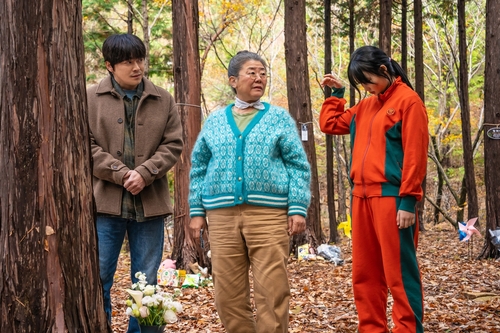Why is 'Zombie Daughter' Trending Now?
It feels immediate and lived-in.
Since its 2025 release, the film has drawn attention from both audiences and critics.
Reports suggested it was on track to stay at number one at the box office into its second weekend.
Starring Jo Jung-suk, the movie’s emotional line reaches beyond simple scares to the warmth and strain inside a family.
The emotions are mixed.
'Zombie Daughter' centers on a father who hides and protects his daughter after a zombie virus spreads.
Meanwhile, the film keeps roots in the original webtoon (digital comic) but was reworked during its 2024 adaptation to emphasize hope and family drama.
Also, the choice to place BoA’s song “No.1” in a key scene serves as a direct emotional bridge for the father–daughter bond; BoA is a long-running K-pop star familiar to many Korean viewers.

What central issues does the film raise?
At its core the film asks a basic question.
By fusing family drama with zombie genre elements, the movie tests what kind of social resonance that hybrid can produce.
It frames a moral question around love: how far will you go to protect someone you love?
However, critics also read this as a metaphor for post‑pandemic anxieties and the politics of exclusion (turning fear into distrust of others).
That context matters.
The webtoon’s darker, more philosophical tone was softened for the big screen, critics say, and that shift makes the film more hopeful and accessible.
On the other hand, that same choice risks disappointing fans who expected the original’s sting.
Meanwhile, scenes featuring military intervention, shoot‑to‑kill orders, and social collapse highlight ethical dilemmas that keep asking the audience to judge right and wrong.
Which positions clash?
Supporters point to empathy.
First, many viewers connect with a story that places family love and fatherhood at its center.
Critics who favor this reading praise the director and actors for catching small gestures and everyday language that make the father–daughter relationship feel believable.
They also argue the film uses zombies as a stand‑in for how societies view illness, disability, or minority status—turning fear into exclusion—and that this metaphor pushes the film beyond mere entertainment.
Finally, the combination of BoA’s music and sensitive direction is said to deepen audience immersion.
Supporters expand that case.
Scholars and reviewers note the film speaks especially to a generation shaped by the COVID‑19 pandemic, where fear of infection and social isolation are fresh memories.
Therefore, even if the movie’s genre thrills are not relentless, its emotional truth and clarity of message can outweigh pure horror for many viewers.
This approach makes a case for reading the film as socially engaged cinema.
Opponents demand genre fidelity.
Conversely, some viewers and critics complain the film does not deliver enough of the zombie genre’s usual tension—less gore, less sustained suspense—so fans of horror may find it bland.
Also, viewers expecting the webtoon’s bleak ending and philosophical bite have voiced disappointment at the movie’s more hopeful turn.
Open or ambiguous endings can broaden interpretation, but they can also leave audiences unsatisfied.
Opponents deepen that critique.
Some reviewers argue the film risks flattening its social themes by simplifying complex issues into tidy emotional beats.
They say that, in trying to make the story more widely appealing, the filmmakers sometimes weaken the narrative’s structural tension, making the plot feel ordinary compared with its ambitious subject matter.
Moreover, tone shifts from the original source material can fracture a fanbase—a common problem when adaptations change a story’s spine.
What should we take away?
The situation is layered.
'Zombie Daughter' deliberately loosens genre rules to place weight on family emotion; that may be an intentional choice rather than a flaw.
Therefore, the film can be read as a compromise between reaching broad audiences and preserving thematic depth.
Consequently, criticism from genre purists and disappointed original‑fans was predictable.
Nevertheless, the film’s metaphor for social exclusion and its ethical questions about protecting loved ones leave a meaningful trace in the current social moment.
A concise conclusion follows.
It largely depends on what you value more.
If you prioritize visceral genre thrills and tight suspense, you may leave the theater wanting.
On the other hand, if emotional range and a film that asks difficult social questions matter to you, the experience may feel rich and lasting.
Either way, questions like “How far will you go to protect someone you love?” are likely to linger.
One last question.
Which side of that divide would you feel closer to after watching it?
'Zombie Daughter' borrows the zombie form to probe family love and social exclusion. The film reinterprets its darker webtoon source into a more hopeful family drama to broaden appeal and deepen emotional access. Yet its softened tone and reduced genre tension are real weaknesses for some fans. Ultimately, the viewing experience depends on whether you prioritize genre thrills or emotional and social resonance.